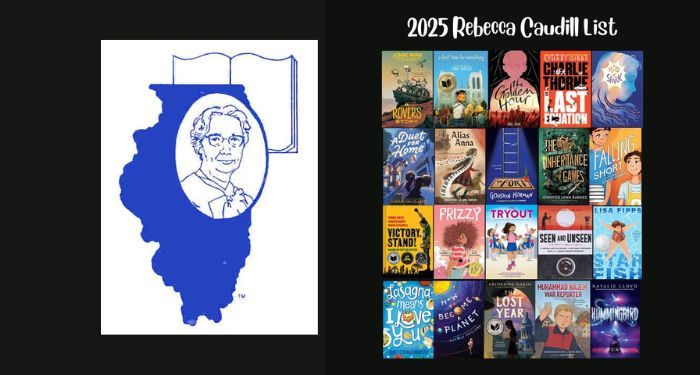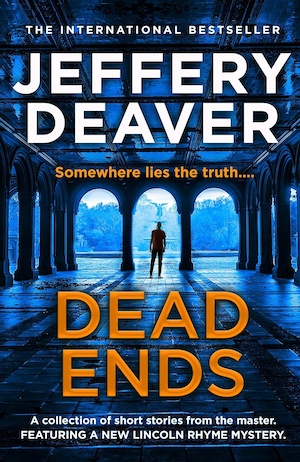
Participation is pretty straightforward: both public schools and libraries are able to take part by registering by the end of February; making available at least 12 of the 20 master list books to students; participants must read or listen to at least three of the titles on the master list; then opening up rules and procedures to facilitate student voting and registration of the student votes. The master list of titles eligible for the 2025 Rebecca Caudill Award are available here and span a range of topics, themes, and genres. Roughly 300 schools across Illinois currently participate in the Caudill Awards selection.
But for one suburban Chicago school district, the Rebecca Caudill Awards will be no more.
Wadsworth, Illinois, boasts a population of just over 3,000. It is located north of Chicago and parts of the town touch the Wisconsin border. At the most recent school board meeting on March 18, 2024, the Millburn School District 22 Board brought up participation in the Caudill awards. This came a week after the Committee of the Whole, when the elementary media specialist and the middle school media specialist presented on three readers choice awards offered by the state. Joining them was a parent in the district who also works as a media specialist in a nearby district. That parent is a member of the Rebecca Caudill Steering Committee–also known as someone involved in helping make the program a success.
The presentation, which begins about minute 55, gave an overview of the three awards, emphasizing that each offers an opportunity for students to get engaged with books and reading. They talked about the importance of mirrors, windows, and sliding glass doors, a concept first described by Dr. Rudine Sims Bishop to describe how books are important not just so readers see themselves and see others, but so they can connect between and among one another over those experiences. The librarians talked about how participation in these awards has helped them develop more inclusive and inviting collections for their students.
One of the first questions to emerge after the presentation came from board member John Ruggles, who wondered if there was a political or cultural angle to the program.
He asked questions whether or not the librarian thinks the list is “left leaning,” then noted that the librarians would lend more credibility to their arguments for keeping the program in place at the district “if you were to admit that it’s left culturally leaning both politically and culturally […] the list didn’t start out that way but over the years it has um and I don’t think we should have a list that we celebrate and promote that leans one way or the other. I think to celebrate something that leans one way or the other isn’t right and that’s that’s my opinion.”
The board member admits he doesn’t believe he and the librarians will see eye to eye on the issue. He believes it is important to celebrate things but they should be “neutral.”
For several minutes, the board argues about whether or not the list is left wing, beginning at minute 1:24:00. The board member complaining noted that he hadn’t read any of the books except one his son brought home, and he felt deeply offended by. He felt it inappropriate to have the book on a list to be celebrated.
The book in question was Stamped: (For Kids) Racism, Antiracism, and You. It appeared on the 2024 Caudill list, and it was a title selected for the award by 5-8th grade students in Illinois.
At the next board meeting just days later on Monday, March 18, the Reading Choice Awards appear on the agenda as an action item. Public comments were abundant–13 comments were submitted in writing and for nearly two hours, the district heard from over sixty educators and community members. None of the commenters were in agreement with removing the program from the school. Most talked about how it had expanded their children’s reading horizons and provided an excellent educational opportunity.
Several discussed being extremely concerned by the sorts of comments made by Ruggles over diverse books.
But when the continuation of the Rebecca Caudill program came to vote at the meeting, it was rejected. John Lorentzen, Peter Pettorini, Liza Wooster, and John Ruggles all delivered the votes that ended the program at the school.
Among the reasons cited for discontinuing the program by these board members from Ruggles included that there was no proof the list wasn’t political and that PragerU offered a good enough list of books. Wooster noted that kids can find books on their own elsewhere and Pettorini stated that–despite evidence in the room contrary to it–the vast majority of people wanted books on the list to be banned anyway.
Members of the community have put together a petition to draw attention to the ending of this program that encourages reading and participation in the literary arts.
“As a parent of two former Millburn students, I am deeply, deeply offended by this vote to cancel the Reader’s Choice program, especially in light of the Board members’ statements, which show them to be ignorant and unread,” wrote Eileen Donohue in the petition.
This story sounds eerily similar to what happened with the 2021 Golden Sower awards in Nebraska. But rather than it happening at the state level, the Caudill incident is at the local level. Unfortunately, moves like this one will likely not happen in isolation.
Although book bans in Illinois have not been as widespread as they have been elsewhere across the country–and indeed, the state was the first in the nation to pass anti-book ban legislation–they are not entirely absent. In fact, many of the book challenges between 2021 and 2022 came against Gender Queer by Maia Kobabe. That book, while heavily targeted nationwide, was especially under scrutiny in Illinois because it earned a spot on the state’s Lincoln List, an awards list voted on by teens similar to the Caudill list. Inclusion on the Lincoln List meant the book was added to school and public libraries that have written in their collection policy that they acquire all Lincoln List titles.
It’s disheartening, of course, but in the case of Gender Queer, an anecdote: not only did students across Illinois put that book on the list, but they saved up their votes during deliberation to ensure the book would be on the final list with their seal of approval.
The next Millburn School District board meeting is scheduled for Monday, April 8, at 7 pm. You can contact each member of the board via email:







